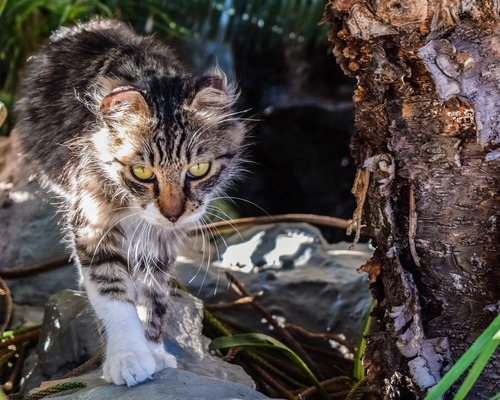By Bonny Burrows
Roaming cats out after curfew are the target of a new council investigation.
As part of its Domestic Animal Management Plan 2018-2022, adopted at Cardinia Shire Council’s 16 October meeting, the shire will investigate ways to lessen the impact and threats domestic cats pose to native wildlife, particularly around areas of high environmental significance.
Ranges Ward councillor Jeff Springfield moved the amended motion to include the investigation into the Domestic Animal Management Plan when he argued that that despite curfews and council laws, roaming cats were a problem.
“There is a problem with native wildlife in significant environmental areas where cats can run rampant.
“They don’t get held back by fences and guidelines that they’re supposed to stay on their property,” Cr Springfield said.
He said that nationally feral cats are responsible for 316 million native bird deaths a year and that domestic cats kill 61 million native birds.
“So, although it’s a bigger problem than council can handle – feral cats – that 61 million birds a year is something we can try and find a solution for in our future management plans,” Cr Springfield said.
His idea attracted overwhelming support from his fellow councillors, including Cr Michael Schilling.
“I have to say as a ward councillor in Central Ward, one of the most common complaints I get from residents is about cats and cats after hours,” Cr Schilling said.
Despite the implantation of a shire-wide cat curfew in 2000 which restricts cats to a property’s boundary “this sometimes doesn’t occur,” he said.
“You just have to drive around Pakenham at 11pm at night and you’ll see cats rooming the streets next to environmentally sensitive areas, next to some of our creek ways,” Cr Schilling said.
Cr Schilling said he didn’t think the council’s processes to manage this were as effective as they could be, and that this new investigation would “really open up conversation at a community level and council level as to how we can manage this better”.
He said that if residents see a roaming cat they have to come to the council chamber, pay $60 to lease a cat cage, then take the cat cage home, then they have to catch the cat and call the council to come and collect the cat.
“This is a massive barrier to time poor residents who are dealing with cats out at night,” Cr Schilling said.
All councillors agreed that there had to be a better way and that it should be a council priority to investigate different means of tackling roaming cats.
“This is not a solution we’re putting forward by any means, but it’s opening the conversation so we can, hopefully, in the coming years come to some better solutions for these things,” Cr Springfield said in his adopted motion.







